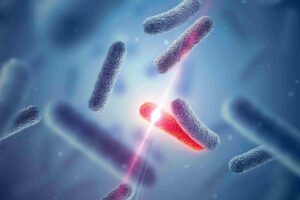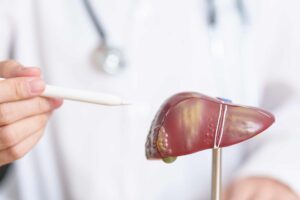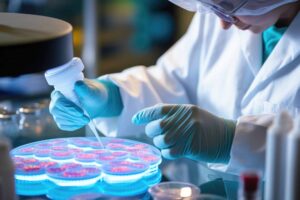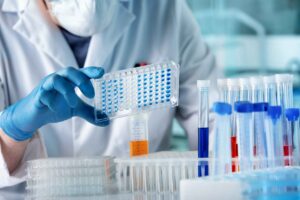• Surviving radiation
• Towards the clinic
What is already known on this topic
High levels of radiation—from accidental exposure, cancer radiotherapy, or other forms of exposure—can lead to severe illness and even death. However, counteracting radiation damage is still a medical challenge. Some studies suggested a protective role of the gut microbiota in radiation-induced damage, but the detailed mechanism remains unclear.What this research adds
Researchers have found that mice that survive a high dose of radiation have a distinct gut microbiota that developed after radiation. Two types of gut bacteria, Lachnospiraceae and Enterococcaceae, countered the effects of intense radiation. These two types of bacteria were also found to be abundant in people with leukemia who underwent radiotherapy and experienced few gastrointestinal side-effects. Treating mice with molecules such as propionate and tryptophan made the rodents resistant to radiation, reducing damage to DNA and mitigating the development of severe gastrointestinal symptoms.Conclusion
The findings suggest a protective role for the gut microbiota against radiation, opening the way for new therapeutic approaches to treat the adverse side effects of radiation exposure.
High levels of radiation—from accidental exposure, cancer radiotherapy, or other forms of exposure—can lead to severe illness and even death. Now, researchers have found that mice exposed to dangerous levels of radiation were protected from radiation damage if they had specific types of bacteria in their gut.
The findings, published in Science, suggest a protective role for the gut microbiota against radiation, opening the way for new therapeutic approaches to treat the adverse side effects of radiation exposure.
“Our work produced a comprehensive dataset of bacteria and metabolites that can serve as a powerful resource to identify actionable therapeutic targets in future microbiome studies,” says study lead author Hao Guo at the University of North Carolina.
Counteracting radiation damage is still a medical challenge. “Substantial federal efforts have been made to mitigate acute radiation symptoms—however, it remains a long-standing and unresolved problem,” Guo says. Some studies suggested a protective role of the gut microbiota in radiation-induced damage, but the detailed mechanism remains unclear.
To assess the role of gut microbes in protecting from radiation injury, Guo and her colleagues exposed mice to high levels of radiation and then analyzed the composition of the rodents’ gut microbiota.
Surviving radiation
The researchers found that a small percentage of mice could survive radiation. The survivors had a distinct gut microbiota that developed after radiation. Two types of gut bacteria, Lachnospiraceae and Enterococcaceae, were particularly abundant in the gut of survivors.
Further experiments showed that Lachnospiraceae and Enterococcaceae countered the effects of intense radiation, promoting the formation of blood cells and attenuating gastrointestinal damage.
Treating mice with bacterial metabolites such as propionate as well as with molecules such as tryptophan made the rodents resistant to radiation, reducing damage to DNA and mitigating the development of severe gastrointestinal problems.
Towards the clinic
Because radiation therapy, which is widely used to treat cancer, often leads to gastrointestinal side-effects, the researchers analyzed stool samples from 21 people with leukemia who underwent radiotherapy. The team found that people who experienced shorter periods of diarrhea had higher levels of Lachnospiraceae and Enterococcaceae than those with longer periods of diarrhea.
Although the findings should be validated in larger studies, the study suggests that Lachnospiraceae and Enterococcaceae, as well as bacterial metabolites such as propionate can contribute to radioprotection.
Bacteria and microbial metabolites, which are inexpensive and already present in our food, may be a good alternative to the only drug that is currently used as a countermeasure for high-dose radiation exposure, says study senior author Jenny Ting. The researchers now hope to launch a clinical trial to test the benefits of microbial metabolites on people who receive radiation therapy.











